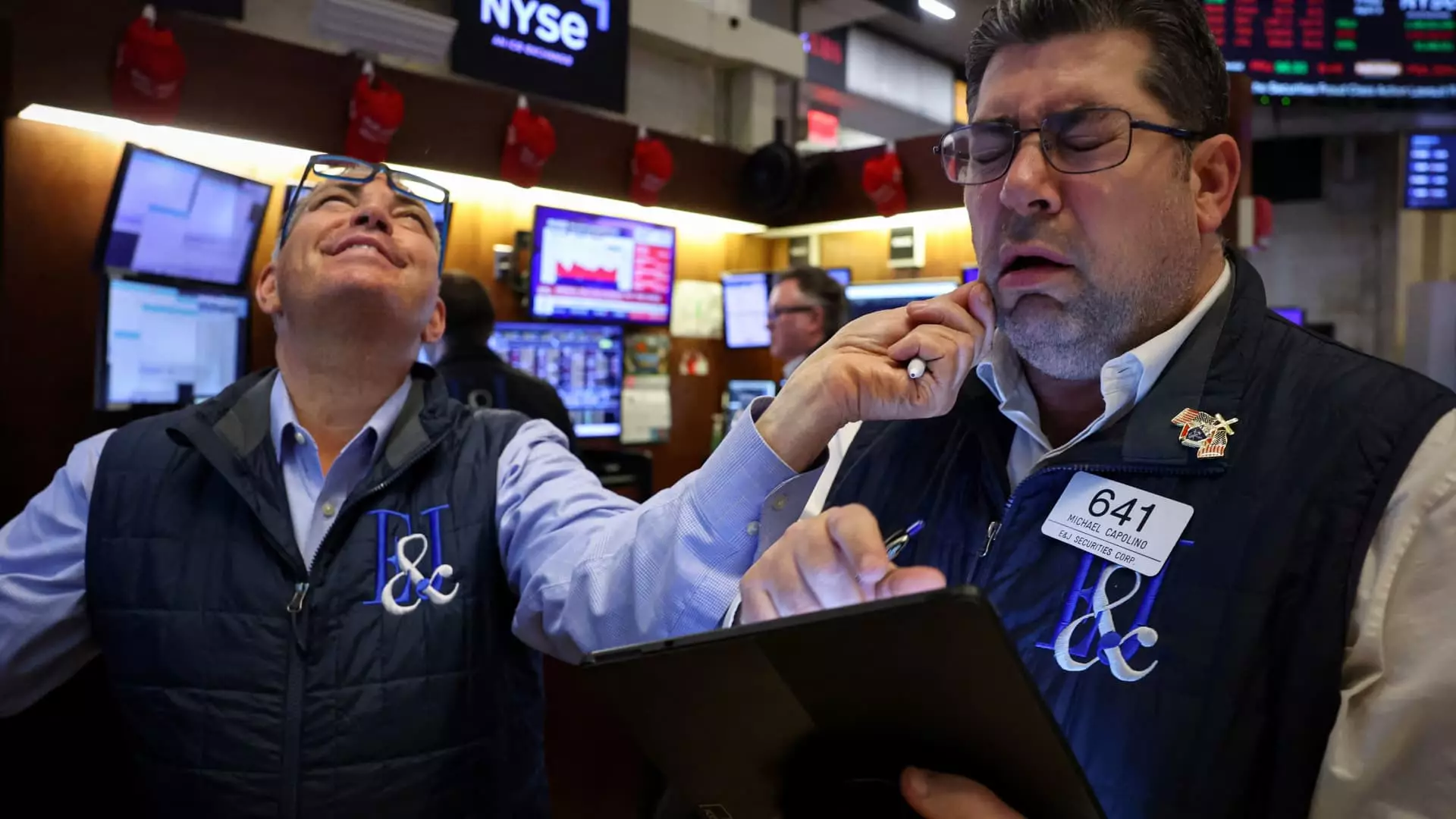In a shocking twist that has rattled both Wall Street and Main Street, President Donald Trump’s recent decision to impose staggering tariffs on nearly all U.S. trading partners has plunged the economy into chaotic disarray. What was supposed to be a calculated maneuver to reshape trade relationships and bolster American manufacturing has spiraled into a crisis marked by disillusionment and unpredictability. The lofty promises of “reciprocal” tariffs turned out to be a mirage, revealing instead a reckless gamble that has ignited fears of inflation, recession, and geopolitical fallout.
Trump’s announcement on a fateful Wednesday took many stakeholders by surprise. The initial hope among economists and market analysts was that tariffs would serve as leverage in negotiations, potentially leading to reasonable concessions from other nations. Instead, what’s transpired is a debacle that echoes past economic mistakes, reminiscent of the detrimental Smoot-Hawley tariffs that exacerbated the Great Depression. With the U.S. effective tariff rate leaping to over 20%, the ramifications extend far beyond trade imbalance; they include the destabilization of stock markets and erosion of globalization principles.
A Recipe for Economic Disaster
The rapid rise in tariffs—now at their highest since 1910—has sent stock prices plummeting, erasing an astounding $6 trillion in market value within days. This abrupt downfall highlights the inherent volatility and fragility of an economy that relies heavily on consumer spending while facing a staggering trade deficit. Investors’ faith has been shaken to the core, leading them to sell off stock holdings and cling to safer options like bonds. With uncertainty looming large, the predictability of future earnings is now engulfed in confusion.
Moreover, Trump’s logic behind the tariffs appears flawed at best. Reports suggest that the administration performed quick calculations that failed to capture the complexity of international trade dynamics. High-deficit partners were targeted, thereby punishing countries based not on their restrictive practices but on an arbitrary formula that offers “rough justice at best.” This blunt approach disregards the fine nuances of global commerce and reinforces the notion that the administration is acting out of desperation rather than strategic foresight.
Geopolitical Consequences Unfolding
As the U.S. grapples with the fallout of its own policies, international relations have deteriorated at a dizzying pace. China’s retaliatory measures, marked by imposing hefty tariffs of 34% on American goods, are just the first signs of a broader trade war brewing on the horizon. The imposition of tariffs has not only strained relations with traditional allies—such as Canada and Mexico—but has also pushed the European Union to consider countermeasures of its own. Diplomacy is rapidly unraveling, with the potential for long-lasting ramifications on a global scale.
The president’s bravado—displayed during a Rose Garden announcement where he gleefully touted the prospects of opening foreign markets—has backfired spectacularly. Far from the envisioned triumphs, Trump has positioned the U.S. as an isolationist power, shedding valuable partnerships and opening the door for other nations to strengthen their own trading alliances at America’s expense. The simplistic notion of “America First” neglects the fact that trade relationships are reciprocal and integral to a robust economy.
The Economic Reality: A Call for Urgent Change
Caught in this storm of economic chaos, experts are sounding the alarm on the damaging consequences these tariffs will impart on everyday Americans. Federal Reserve Chair Jerome Powell has expressed concerns that the heightened tariffs may not only stifle growth but will also lead to increased inflation—an untenable situation for a populace already grappling with rising prices.
Many analysts, including voices from esteemed academic institutions, have condemned Trump’s moves as a severe policy misstep, labeling it “the biggest policy mistake in 95 years.” With substantial economic costs looming, the chances of sparking a full-blown bear market only heighten our collective anxiety.
Though some remain hopeful that negotiations may yield favorable outcomes, Trump’s obstinate commitment to his policies contributes to a climate of distrust and fear. As he proclaims, “ONLY THE WEAK WILL FAIL,” it becomes evident that this steadfastness does not resonate well with those who value sustainable economic growth over bravado and bluster.
As we stand on the precipice of an uncertain fiscal future, it is crucial to rethink our trajectory. The call for level-headed analysis, a return to multilateral dialogue, and an embrace of progressive trade policies is louder than ever. Let us hope that the lessons from this tariff-induced turmoil elicit a thoughtful reconsideration of America’s place in the global marketplace before it is too late.


Leave a Reply